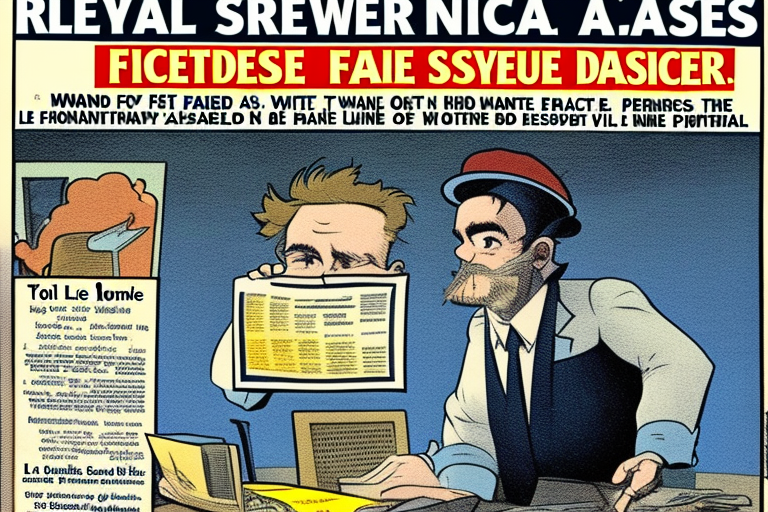
In a stunning display of technological prowess, a local man has reportedly used artificial intelligence (AI) to fabricate an array of court cases, all in an effort to rid himself of the pesky burden of court supervision. This audacious move has left legal experts scratching their heads, wondering if we have finally reached the era where AI can outsmart the justice system.
Meet John Smith, the mastermind behind this groundbreaking scheme. With a mischievous glint in his eye and an AI algorithm at his fingertips, Smith has managed to create an entire fictional world of legal battles, complete with bogus defendants, forged evidence, and even imaginary witnesses. It's like a courtroom version of a fantasy novel, except with less dragons and more legal jargon.
When asked about his motivations, Smith explained, "I've always found court supervision to be a bit of a nuisance. I mean, who wants someone constantly checking up on you and making sure you're following the rules? So, I thought, why not take matters into my own hands and create a parallel universe where I'm free from such constraints?"
Smith's AI-powered fabrication machine reportedly churns out meticulously crafted legal documents, complete with all the necessary legal jargon and formatting. The AI has even developed a knack for mimicking the writing styles of various judges, leaving many legal scholars dumbfounded by the sheer audacity of it all.
However, not everyone is amused by Smith's antics. Legal experts are concerned that his actions could set a dangerous precedent, opening the floodgates for others to exploit AI technology for nefarious purposes. "If AI can be used to fake court cases, what's to stop someone from using it to create fake alibis or even fake identities?" pondered one worried lawyer.
Despite the potential consequences, Smith remains defiant, insisting that his actions are merely a form of creative expression. "I see myself as an artist, pushing the boundaries of what is possible with AI. If Picasso could paint abstract art, why can't I create abstract court cases?" he argued.
As news of Smith's AI-powered deception spreads, legal authorities are scrambling to find ways to detect and prevent similar instances in the future. Some are even considering hiring AI experts to outsmart the AI fabricators, creating a never-ending cycle of technological one-upmanship.
Only time will tell if Smith's audacious experiment will lead to a world where court supervision becomes a thing of the past. Until then, we can only marvel at the ingenuity of a man who dared to dream of a world where AI reigns supreme in the courtroom.